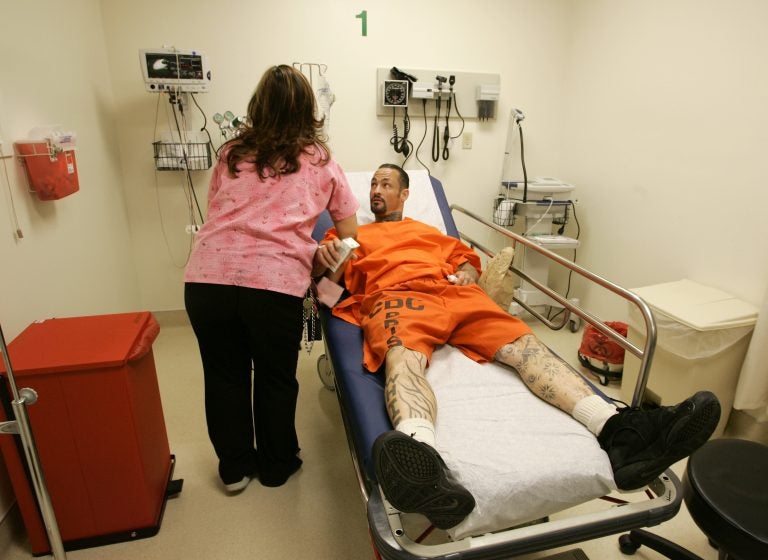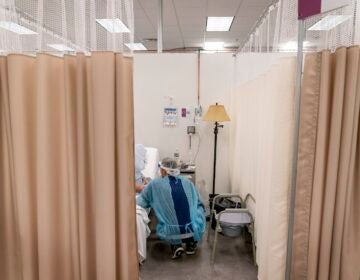Time in maximum security prisons helps nurses learn non-biased, compassionate care
Nursing students go through several rotations, and, at Jefferson College of Nursing in Philadelphia, that can include time at a maximum security prison.

A registered nurse treats an inmate at San Quentin State Prison in this 2007 file photo. Nursing students at Jefferson who spent their community rotation in a maximum security prison began to learn how to care for patients without judging them. (AP Photo/Eric Risberg,file)
Nursing students go through several rotations, and, at Jefferson College of Nursing in Philadelphia, that can include time at a maximum security prison.
Mary Bouchaud, an assistant professor there, came up with the idea more than 10 years ago.
“My hypothesis was, if I could take them to a setting like an all-male maximum security prison and teach them to provide compassionate care, then it should be that much easier to transfer that to any area and any patient that they would care for,” she said.
Bouchaud has sent students to South Woods State Prison in New Jersey, as well as juvenile detention centers and a federal detention center in Philadelphia.
She recently analyzed 10 years of student surveys that went out before and after each six-week rotation and found that perceptions of prisons changed. Many students had preconceived notions that prisons were violent and scary. But on exit surveys, they reported feeling differently — that inmates were respectful and that the prison felt like a community. Some students said they felt more compassionate after working with the inmates.
Jefferson nursing student Emily Johnson said the program taught her how to think on her feet as a nurse, and it gave her a fuller picture of health disparities.
During the rotation, one of her patients had been skipping regular insulin injections for his diabetes. When she called him to the clinic to find out why, his answer surprised her.
“His perspective was, ‘Well, I’m getting released, and I won’t have this medication, and I need to get my body ready,’” said Johnson.
The program doesn’t just help future nurses, Bouchaud said. Some research suggests good nursing care in prisons can help reduce recidivism.
WHYY is your source for fact-based, in-depth journalism and information. As a nonprofit organization, we rely on financial support from readers like you. Please give today.




